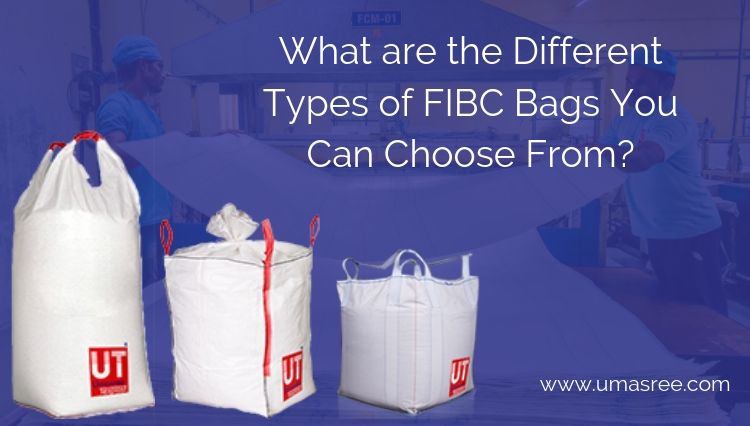What are the Different Types of FIBC Bags You Can Choose From?

If you are looking to purchase FIBC bags, you must ensure you are buying bags from a reputed FIBC bags Manufacturer. Also, of critical importance, is the kind of FIBC bag you decide to buy, and this choice is dependent on the fabric of these bulk bags.
Typically, you can choose from Type A, B, C and D Types of FIBC Bags
Type A FIBC Bags
These bags are made from plain-woven polypropylene and other non-conducive fabrics. These bags offer no static protection and static electricity is produced when products rub against each other inside these bags or when these bags are either filled or emptied.
If you want to transport non-flammable products, this is the FIBC bag you must choose.
Type B FIBC Bags
These bags are similar to Type A bags and are also made from plain-woven polypropylene and non-conducive fabrics, and they do not dissipate static electricity. The difference between Type A and Type B bags is that the latter have low breakdown voltage, meaning they are able to prevent burst discharges, yet cannot disperse an electrostatic charge.
If you want to transport dry, flammable powders, this bag is the right choice; but these bags must not be used in dusty environments wherein the ignition energy is more than 3mJ.
Type C FIBC Bags
These Conductive FIBC bags are also known as ground-able bulk bags and are made from non-conductive polypropylene fabrics. These fabrics are then interwoven with conducting threads in a grid-like pattern. When these bags are filled or discharged, there must be an electrical interconnection between the conducting threads and also an earthing connection.
If you want to store and transport flammable powders, this bag is the right choice.
Type D FIBC Bags
These bags are made from antistatic and static dissipative fabrics such as quasi-conductive yarns that prevent incendiary sparks, propagation of brush discharges, and brush discharges, without the need for an earthing connection. Their focus is on the safe dissipation of static electricity and low-energy corona discharge.
If you want to pack and store combustible products in environments that are flammable and combustible, this is the bag you must choose.
Conclusion
Before you choose an FIBC Bags Exporter, it is imperative that you identify the kind of bags you want to choose by making sure they perfectly cater to your needs.



Comments
Post a Comment